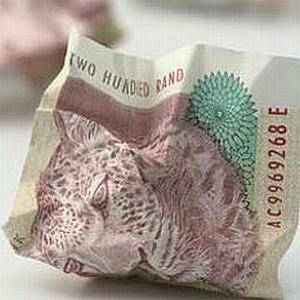
I work for my money. Hard. Why does some lazy bum of a scammer think he has a right to steal it from me, asks Susan Erasmus.
Just today I received four phishing e-mails. One supposedly from SARS (with a G-mail address): two from strangers who want to lend me vast amounts of money, and one from someone who calls me 'dearly beloved', who is supposedly weeping while writing this e-mail, but who doesn't know what my name is.
This last one wants to donate millions of dollars to charities of my choice, but needs my bank account details, login details, PIN number, security codes on my burglar alarm, a floor plan of my house, my grandmother's inside leg measurements, and my ID number.
Not today, weeping stranger, supposedly a widow of Nigerian bank official, blah, blah, blah. Yeah right, and I am the Sultan of Brunei. I am prepared to make a substantial bet on it that this person has never been anywhere near Nigeria, but lurks behind a computer screen somewhere in suburban South Africa with evil intent.
These days nostalgia means longing for the days when having your money stolen meant you had a bruise to show for the mugging. None of this silent cloak-and-dagger stuff that happens in the electronic aether while you're having a Sunday afternoon nap.
I suppose before you can be a victim of a phishing scam, you need to either have a fair amount of money in your account, or big unused amounts of credit in a bond account or overdraft. I challenge anyone to try and rip vast amounts of money out of my account – I have been trying myself for years without any success – and I know the PIN numbers.
Greed and desperation
These phishing scams all appeal to two basic human traits: greed and desperation. It is probably easy, if you were less cynical than I am, to hope against hope that you have really won the Portuguese lottery, or that some stranger has left you millions in his will. Or that SARS is about to refund you thousands. Alas, I am more likely to win the Miss California Teen wet T-shirt competition.
The harsh truth is that in this life you never get something for nothing. People will hang onto every cent they can, self-interest is one of the biggest motivators, and acts of magnanimous charity to strangers are rare indeed. In fact, mostly downright phishy.
Every security measure instituted by banks and cellphone companies is a new challenge to scammers. These are people who don't want to work for their own money, but are quite happy to steal yours if you give them half a chance. What they do is clever: they must be reasonably computer-savvy in order to do this. And they probably put in more hours than you do. In fact, they could probably get a real job with the skills they have. Mind you, one can hardly put 'phishing scammer from 2009 – 2012' on a CV.
Parasites on the system
These people are parasites on the system – and if they are too successful, they will eventually kill their hosts. I am just always amazed by the bare-faced cheek of their conviction that it is OK for them to do this. They get thousands out of other people's momentary lapses of vigilance and they have no moral problem with it whatsoever.
And why does one never hear of any of these people who get caught? You hear of credit card scammers who land in jail, fraudsters who steal money from pension funds, and crooked bookkeepers who siphon off millions from their employers who land behind bars.
But never phishing scammers. Surely they must leave a paper trail? SIM swops and bank transfers leave records. If bank or cellphone company employees are in on the deal, why do they never seem to get caught? All seems a bit suspect to me.
And the grand larceny continues unabated. R360 000 here, R280 000 there, and endless countless smaller amounts that never reach the press.
We are all under siege. You cannot relax for one moment. You can trust no one. NEVER give anyone your banking details.
Right, if you didn't have a nervous tic when you started reading this column, you should have one by now.
I am now off to go and put what's left of my month's salary under my mattress, with or without the help of Mrs Kudani, whose husband used to be the Minister of Justice in Togo.




 Publications
Publications
 Partners
Partners









